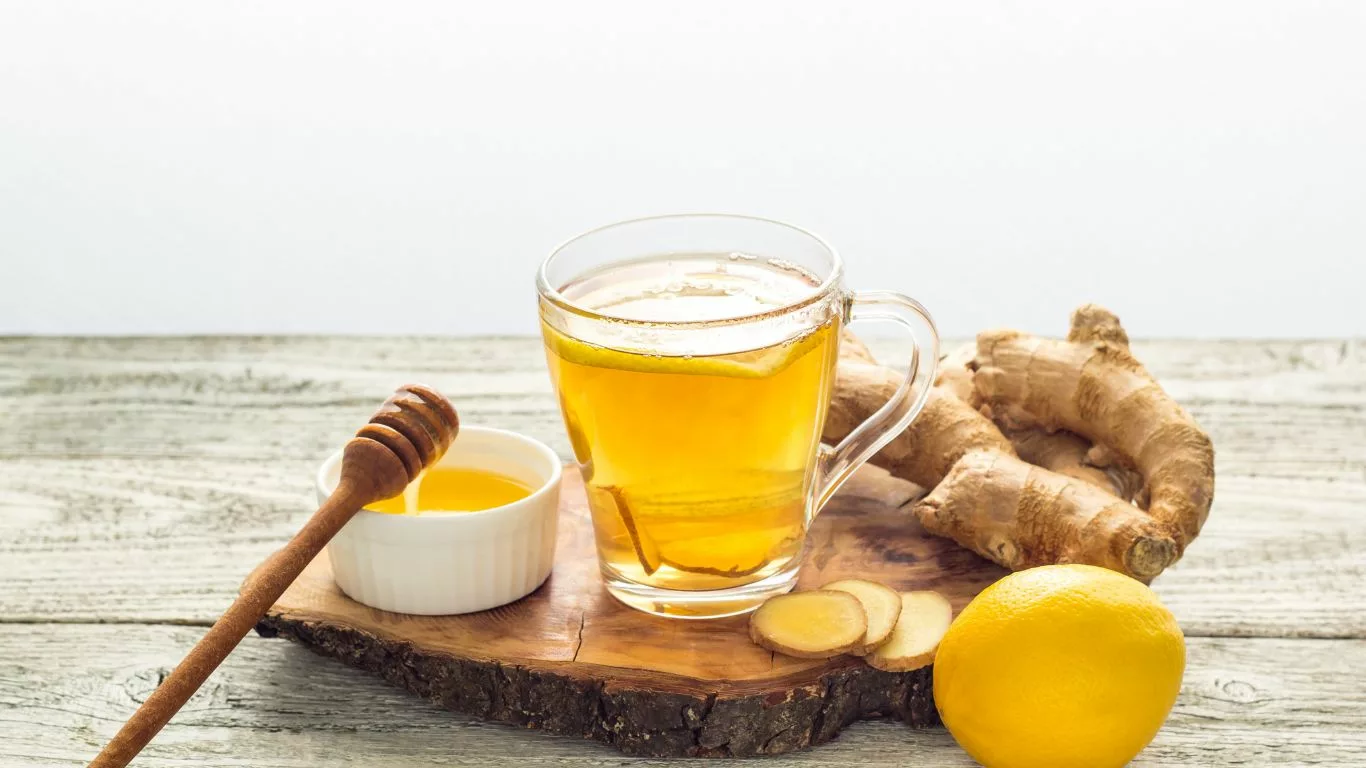Exploring GERD Alternative Treatments: Natural Relief Options
Discover various alternative treatments for GERD, including lifestyle changes and natural remedies. Learn effective strategies for relief in our comprehensive guide.
Gastroesophageal reflux disease (GERD) affects millions of people worldwide, leading to discomfort and disruption in daily life. While traditional treatments often include medications, many individuals seek alternative methods for relief. This article explores various natural remedies and lifestyle changes that can help manage GERD symptoms effectively.

What Are GERD Alternative Treatments?
Alternative treatments for GERD (Gastroesophageal Reflux Disease) encompass a diverse range of approaches that focus on alleviating symptoms through non-pharmaceutical means. These strategies prioritize dietary modifications, herbal remedies, and lifestyle changes, allowing individuals to manage their condition holistically and potentially reduce their reliance on medications.
Dietary Modifications
Diet plays a crucial role in managing GERD symptoms, and one of the most impactful changes individuals can make is to their dietary habits. Certain foods are known to trigger or worsen GERD symptoms, while others can promote digestive health and provide relief.
Low-Acidity Foods
Incorporating low-acid foods into your diet is essential for reducing stomach acidity. Foods such as bananas, melons, and oatmeal are excellent options. These foods are not only gentle on the digestive tract but also help create a more balanced internal environment, which may mitigate feelings of heartburn and discomfort.
For example, bananas are rich in potassium and can help neutralize stomach acid, while melons are hydrating and low in acidity, making them ideal for individuals prone to GERD. Oatmeal, a whole grain, provides fiber that aids digestion and promotes a feeling of fullness, which can help prevent overeating—another potential trigger for reflux.
Elimination of Trigger Foods
Identifying and eliminating trigger foods is a critical step in managing GERD symptoms. Common culprits include spicy foods, chocolate, caffeine, alcohol, and high-fat meals. These foods can relax the lower esophageal sphincter, allowing stomach acid to escape into the esophagus.
Keeping a food diary can be particularly helpful in this process. By tracking your daily food intake and noting any symptoms, you can identify patterns and pinpoint specific foods that may be contributing to your discomfort. Gradually removing these trigger foods from your diet can lead to significant symptom relief over time.

Herbal Remedies
Several herbal treatments have gained recognition for their potential benefits in managing GERD symptoms. These natural remedies can complement dietary changes and lifestyle modifications.
Ginger
Ginger is well-known for its anti-inflammatory properties and has been used for centuries to alleviate digestive issues. Consuming ginger tea or incorporating fresh ginger into meals may help soothe the digestive tract, reduce nausea, and alleviate symptoms associated with GERD. Ginger’s ability to promote gastric emptying can also reduce the likelihood of reflux episodes.
Licorice Root
Licorice root is another herbal remedy that may provide benefits for those suffering from GERD. It can help increase mucus production in the stomach, which serves as a protective barrier against acid. The use of deglycyrrhizinated licorice (DGL) supplements is often recommended for GERD management, as they are less likely to cause side effects associated with regular licorice, such as elevated blood pressure.

Lifestyle Changes
Beyond dietary adjustments, certain lifestyle modifications can significantly impact GERD symptoms and improve overall digestive health.
Weight Management
Maintaining a healthy weight is crucial for managing GERD symptoms, as excess weight can place additional pressure on the stomach and exacerbate reflux. Engaging in regular physical activity, alongside a balanced diet, can help achieve and maintain a healthy weight. Simple activities such as walking, swimming, or cycling can be beneficial and contribute to better digestion.
Elevating the Head During Sleep
For those who experience nighttime reflux, elevating the head of the bed by 6 to 8 inches can be an effective measure. This elevation helps utilize gravity to keep stomach acid from flowing back into the esophagus during sleep, reducing the likelihood of nighttime symptoms. Specialized wedge pillows are also available for this purpose.
Stress Reduction Techniques
Stress is a known contributor to digestive issues, including GERD. Implementing stress reduction techniques can promote better digestive health and reduce symptom flare-ups. Practices such as yoga, meditation, and deep breathing exercises can help alleviate stress and improve overall well-being. These techniques not only promote relaxation but also encourage mindfulness, helping individuals become more aware of their eating habits and potential triggers.

How to Implement GERD Alternative Treatments
To effectively incorporate alternative treatments into your GERD management plan, consider the following steps:
Start with Diet Changes
Begin by identifying your trigger foods and replacing them with GERD-friendly options. Gradually introduce low-acid foods into your diet while closely monitoring your symptoms. This incremental approach allows you to assess the impact of each dietary change.
Consult with a Healthcare Professional
Before starting any herbal remedies or supplements, it’s important to consult with a healthcare provider. They can help ensure that these remedies are safe and appropriate for your specific situation, particularly if you have existing health conditions or are taking medications that could interact with herbal treatments.
Incorporate Lifestyle Changes Gradually
Implement lifestyle changes one at a time to allow your body to adjust. As you monitor how each change affects your symptoms, you can adapt your approach based on what works best for you. This individualized strategy can enhance the effectiveness of your GERD management plan.

Considerations and Precautions
While alternative treatments can be beneficial, there are important considerations to keep in mind:
Individual Responses Vary
Everyone’s body reacts differently to dietary changes and herbal remedies. What works for one person may not work for another, so it’s crucial to monitor your symptoms closely. Be patient and give your body time to adjust to new foods and lifestyle changes.
Consult with a Professional
Always discuss any new treatment approach with a healthcare professional, especially if you have underlying health conditions or are taking medications. They can provide guidance tailored to your health needs and help you avoid potential complications.

Conclusion
Exploring alternative treatments for GERD can provide individuals with effective strategies to manage their symptoms naturally. By making dietary modifications, incorporating herbal remedies, and adopting lifestyle changes, many people find relief from GERD discomfort. However, it’s essential to approach these alternatives thoughtfully and consult with a healthcare professional to ensure they align with your health needs.
Appendices
References
For further exploration of alternative treatments for GERD, consider reviewing the following references:
- Kahrilas, P. J., & Shaheen, N. J. (2018). Gastroesophageal Reflux Disease. New England Journal of Medicine, 378(8), 749-758. Read Article
- Makharia, A., & Sharma, S. (2020). Diet and GERD: A Review of the Literature. Journal of Clinical Gastroenterology, 54(4), 333-342. Read Article
- Heddle, R., & O’Connor, A. (2021). Herbal and Dietary Supplements for the Treatment of GERD. Complementary Therapies in Medicine, 58, 102703. Read Article
FAQs
Here are some frequently asked questions about GERD alternative treatments:
- Are alternative treatments effective for GERD?
Many individuals find relief through dietary changes, herbal remedies, and lifestyle modifications. However, effectiveness can vary. - Can I combine alternative treatments with medication?
Yes, but it’s important to consult with a healthcare professional to ensure safe and appropriate use of both. - What should I avoid when managing GERD?
Avoid known trigger foods, overeating, and lying down immediately after meals to minimize symptoms.
Related Table
Here’s a summary table of key information regarding GERD alternative treatments:
| Aspect | Information |
|---|---|
| Recommended Dietary Changes | Focus on low-acid foods and eliminate common triggers. |
| Herbal Remedies | Ginger and licorice root may provide symptom relief. |
| Lifestyle Modifications | Weight management, head elevation during sleep, and stress reduction. |
Note: Individual responses to alternative treatments may vary, and it’s important to seek personalized advice from a healthcare provider.
Disclaimer: The information provided in this article is for educational purposes only and should not replace professional medical advice. Always consult a healthcare professional for advice tailored to your specific health needs.

Camellia Wulansari is a dedicated Medical Assistant at a local clinic and a passionate health writer at Healthusias.com. With years of hands-on experience in patient care and a deep interest in preventive medicine, she bridges the gap between clinical knowledge and accessible health information. Camellia specializes in writing about digestive health, chronic conditions like GERD and hypertension, respiratory issues, and autoimmune diseases, aiming to empower readers with practical, easy-to-understand insights. When she’s not assisting patients or writing, you’ll find her enjoying quiet mornings with coffee and a medical journal in hand—or jamming to her favorite metal band, Lamb of God.







